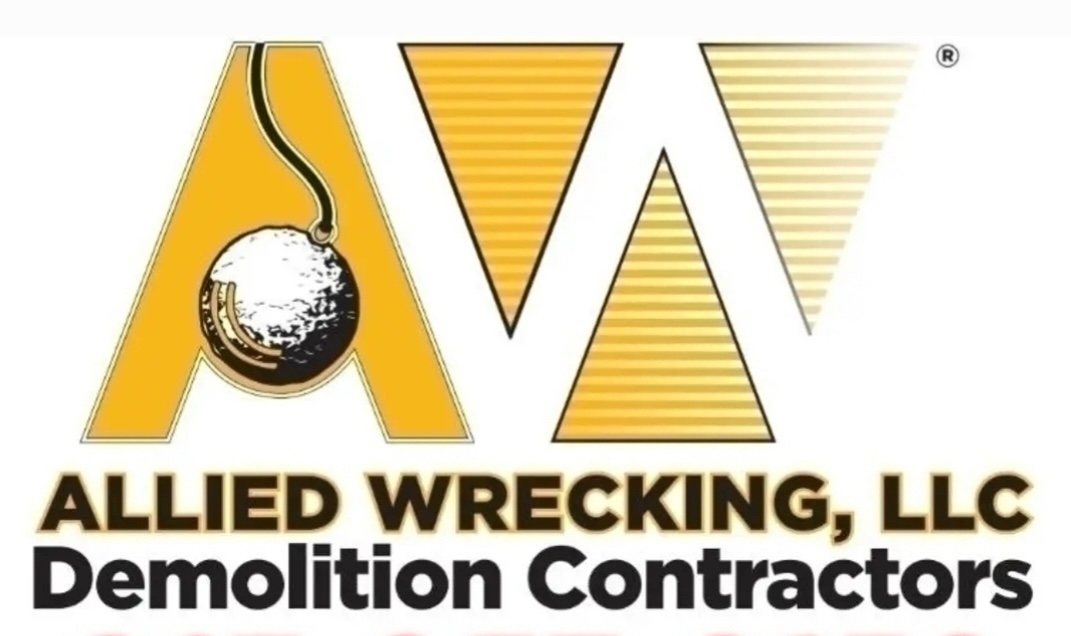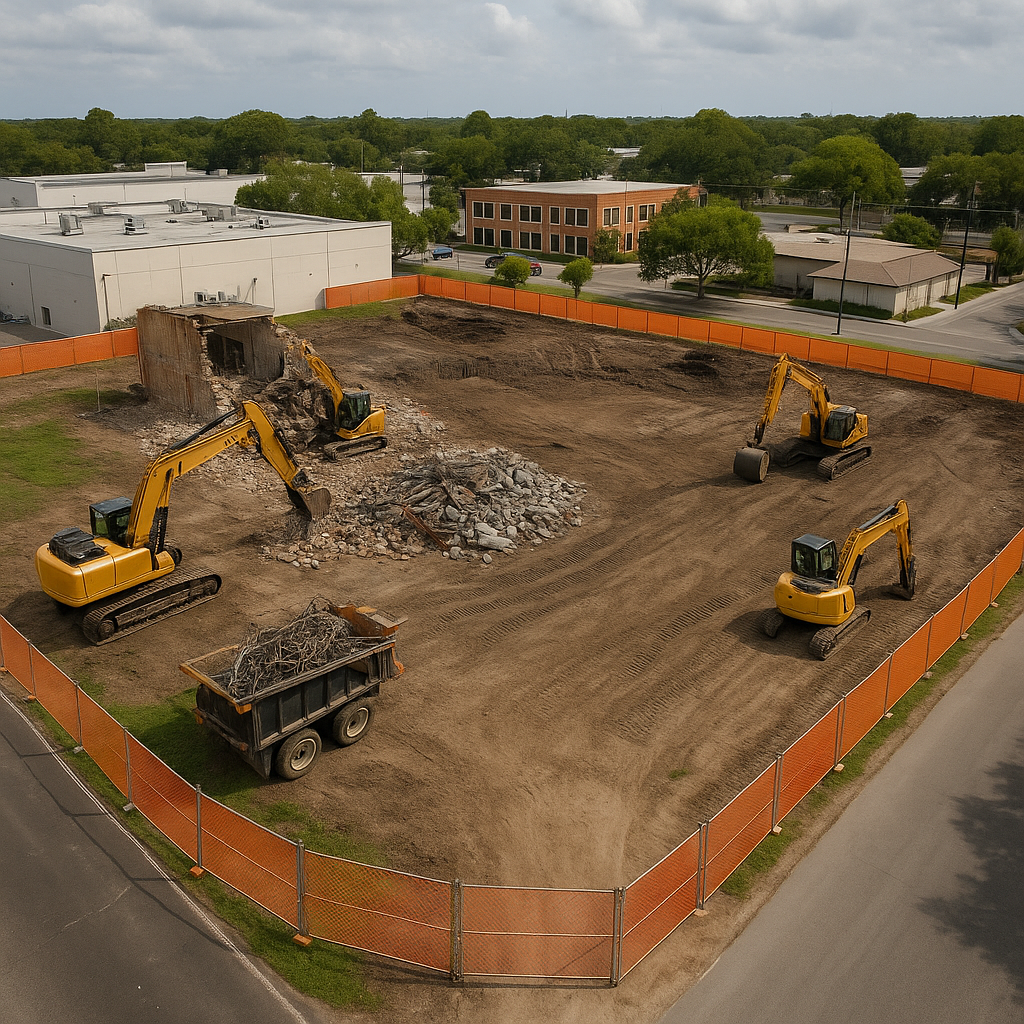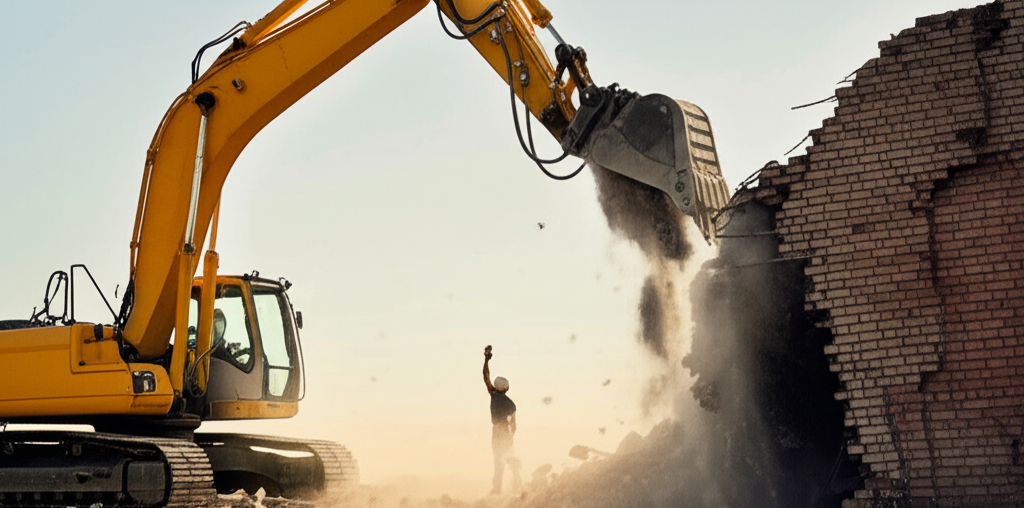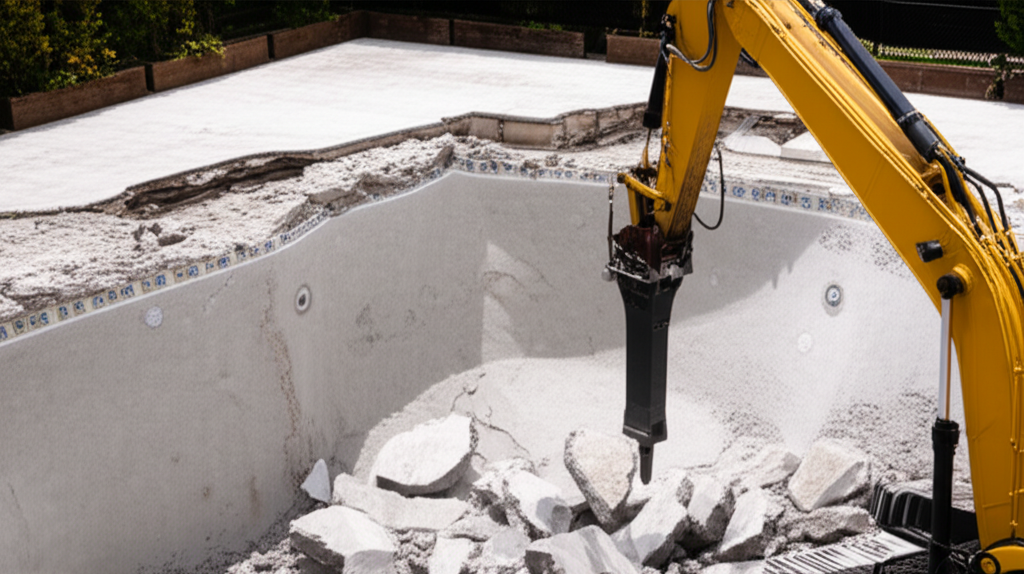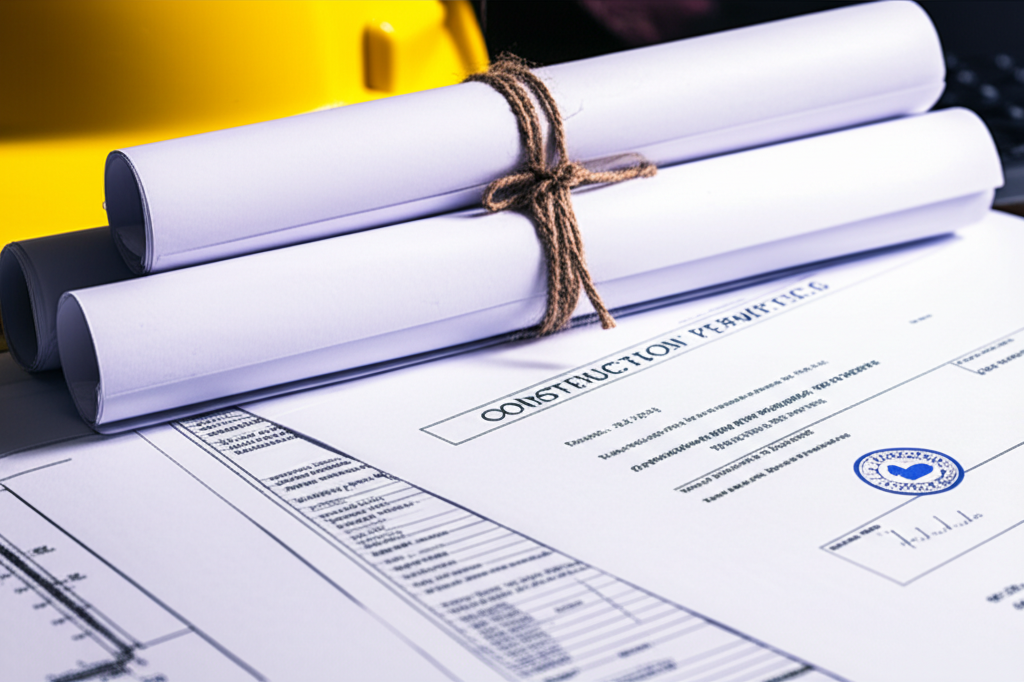Demolition projects vary significantly depending on whether they're residential or commercial in nature. Understanding these differences is crucial for property owners, developers, and contractors to ensure proper planning, budgeting, and execution. In this article, we'll explore the key distinctions between residential and commercial demolition projects.
Scale and Complexity
The most obvious difference between residential and commercial demolition is the scale of the project:
- Residential demolition typically involves single-family homes, duplexes, or small multi-family structures. These projects are generally smaller in scale, with simpler structural considerations.
- Commercial demolition encompasses everything from retail spaces and office buildings to industrial facilities and warehouses. These structures are often larger, taller, and more complex in their construction.
Commercial buildings frequently have specialized systems not found in homes, such as commercial HVAC, fire suppression systems, elevators, and complex electrical systems, all of which require specific demolition approaches.

Equipment and Machinery
The equipment required for each type of demolition varies considerably:
- Residential demolition typically utilizes smaller excavators, skid steers, and dump trucks. Hand tools and smaller machinery can often access residential sites more easily.
- Commercial demolition frequently requires heavy-duty equipment such as high-reach excavators, wrecking balls, larger bulldozers, and specialized machinery for concrete crushing and material processing.
The selection of equipment depends not only on the size of the structure but also on factors like site access, surrounding buildings, and the specific demolition methods being employed.
Permitting and Regulations
Both types of demolition require permits, but commercial projects typically face more stringent regulatory requirements:
- Residential demolition usually requires basic demolition permits, utility disconnections, and possibly neighborhood notifications.
- Commercial demolition often involves additional permits related to environmental impact, traffic management, noise ordinances, and specialized inspections. Commercial projects in urban areas may require street closure permits and coordination with multiple municipal departments.
Permit Tip
For both residential and commercial demolition in Tampa, permit applications should be submitted at least 2-3 weeks before your planned start date to allow for processing time and any required inspections.
Environmental Considerations
Environmental concerns are important for all demolition projects but differ in scope:
- Residential demolition typically involves common hazardous materials like asbestos (in older homes), lead paint, and potentially mold or radon.
- Commercial demolition may involve these same materials plus additional concerns such as PCBs, industrial chemicals, larger quantities of asbestos in mechanical systems, and specialized disposal requirements for commercial building materials.
Commercial projects often require more extensive environmental testing and abatement procedures before demolition can begin. The environmental impact assessment for commercial projects is typically more comprehensive.
Safety Protocols
Safety is paramount in all demolition work, but the protocols differ:
- Residential demolition safety concerns focus on the immediate property, neighboring homes, and utility lines. Site security often involves simple fencing and signage.
- Commercial demolition requires more extensive safety planning, including traffic management, pedestrian protection, dust control over larger areas, and sometimes vibration monitoring for nearby structures. Commercial sites typically need more robust security measures due to their size and duration.
Waste Management and Recycling
The volume and types of materials generated differ significantly:
- Residential demolition produces relatively predictable waste streams, primarily wood, drywall, roofing materials, concrete, and metals. The volume is generally manageable with standard disposal methods.
- Commercial demolition generates much larger volumes of materials, often including substantial amounts of concrete, steel, glass, and specialized building components. Commercial projects frequently require on-site sorting and processing of materials.
While recycling is important for both types of projects, commercial demolition often has greater potential for material recovery due to the quantities involved and the types of materials used in commercial construction.
Project Timeline and Planning
The planning and execution timelines vary considerably:
- Residential demolition projects can often be completed in a few days to a week, with planning taking a few weeks.
- Commercial demolition projects may take weeks or months to complete, with planning phases extending for months before work begins. Commercial projects require more extensive pre-demolition surveys, engineering reviews, and coordination with multiple stakeholders.
Cost Factors
Pricing structures differ between the two types of demolition:
- Residential demolition is typically priced based on the square footage of the home, complexity of the structure, and disposal costs. Prices are generally more standardized.
- Commercial demolition pricing is more complex, factoring in structural engineering requirements, specialized equipment needs, material processing, environmental considerations, and often longer project durations.
Commercial projects frequently include additional line items for things like traffic control, dust suppression systems, and specialized material handling that aren't typically necessary for residential work.
Neighborhood Impact
The impact on surrounding areas differs in scale and nature:
- Residential demolition primarily affects immediate neighbors with noise, dust, and temporary traffic disruptions. These impacts are typically short-lived.
- Commercial demolition can affect entire neighborhoods or business districts with extended noise, dust, traffic rerouting, and visual impacts. Public relations and community communication are often more critical for commercial projects.
Choosing the Right Contractor
Perhaps the most important consideration is selecting a contractor with the right experience:
- For residential demolition, look for contractors who specialize in home demolition and have experience working in residential neighborhoods.
- For commercial demolition, you need contractors with the equipment, expertise, and project management capabilities to handle larger, more complex projects and navigate the additional regulatory requirements.
While some demolition companies handle both types of projects, many specialize in one or the other. At ALLIED Wrecking, we have dedicated teams for both residential and commercial demolition, ensuring the right expertise for each project type.
Need Expert Demolition Services?
Whether you're planning a residential or commercial demolition project in Tampa, ALLIED Wrecking has the expertise, equipment, and experience to handle it safely and efficiently.
Request a ConsultationConclusion
Understanding the differences between residential and commercial demolition is essential for proper project planning and execution. While both share some fundamental principles, the scale, complexity, regulatory requirements, and methodologies differ significantly.
By recognizing these differences and working with experienced professionals who understand the unique challenges of your specific project type, you can ensure a smoother, safer, and more efficient demolition process.
